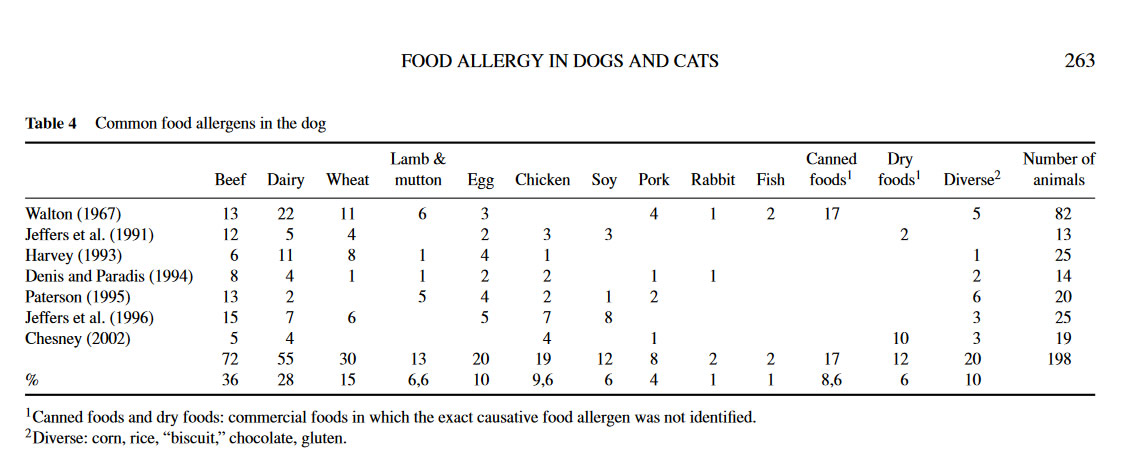“From my published research in 2022, dogs fed a plant-based diet could live up to 18 months longer than those fed a meat-based diet”
– Dr Sarah Dodd, University of Guelph
Evidence Based Published Papers Supporting Dogs Going Plant-Based
“The good thing about SCIENCE is that it’s true, whether or not you believe in it” – Neil Tyson
A 10th study now supports the use of nutritionally-sound plant-based dog food for our dogs April 2024
Linde A, Lahiff M, Krantz A et al. (2024). Domestic dogs maintain positive clinical, nutritional, and haematological health outcomes when fed a commercial plant-based diet for a year. Published in PLOS ONE April 2024 https://dogsgo-plantbased.co.uk/wp-content/uploads/2024/04/AnnikaLindeStudy2024j.pdf Please note that Prof Andrew Knight has kindly highlighted all the important summaries in this paper.
Throughout the study period, the dogs maintained their health based on these evaluations. Plant-based dog foods provide pets with all essential amino acids, while maintaining L-taurine (plasma) and L-carnitine (serum) levels. What’s more, eating a plant-based diet may have addressed a nutritional deficiency.
“Almost half (7 of 15) of the dogs presented with insufficient levels of 25-hydroxyvitamin D at baseline,” the researchers wrote. “In contrast, we found that Vitamin D levels normalised in most dogs at six months (6 of 7 Vitamin D insufficient dogs), and all dogs at 12 months, which was achieved with plant-based dog food alone and without supplement use.”
Findings support the hypothesis that PLANT was comparable to MEAT for maintenance of healthy adult dogs for at least 3 months
This study of 61 dogs at the University of Guelph by Dr Sarah Dodd et al. (2023) studied 31 dogs fed an experimental vegan diet (‘PLANT’) and 30 fed a commercial meat-based diet (‘MEAT’) for 3 months. Read the study here.
“Bone mineral content and density did not differ from baseline values. Health status was maintained in dogs fed PLANT and Vitamin D2 [which is sourced from non-animal sources including Algae] appeared efficacious in maintaining serum total Vitamin D concentrations and bone mineralisation. Findings support the hypothesis that PLANT was comparable to MEAT for maintenance of healthy adult dogs for at least 3 months.”
Could vegan pet food help save the planet? Oct 2023
Studies by Prof Andrew Knight from the University of Winchester show how plant-based diets lower greenhouse gas emissions (GHGs), and use less land and water. Food energy savings mean more people can be fed. His major study published in leading scientific journal PLOS ONE on 04 Oct 2023 has demonstrated very large environmental benefits arising from nutritionally-sound vegan diets – for dogs and cats, as well as people.
After analysing pet food ingredients in detail, as well as food consumed by people, Veterinary Professor Andrew Knight calculated that the world’s dogs and cats consume around 9% of all land animals killed for food, or around 7 billion animals annually, as well as billions of fish and aquatic animals.
Prof Knight calculated that if all the world’s dogs went vegan, it would save more GHGs than all those emitted by the UK, land larger than Mexico, freshwater exceeding all renewable freshwater in Denmark, and would feed around 450 million additional people – more than the entire EU.
Knight et al. (2022) studied 2,536 dogs fed vegan or meat-based diets for at least one year
Survey of 2,536 mostly European dog guardians (owners)
Knight et al. (2022) studied 2,536 dogs fed vegan or meat-based diets for at least one year. Being a very large-scale study, these results confer a high degree of statistical reliability. Included were owner opinions of health – which are not always reliable – as well as a range of more objective data, such as prevalence of medication usage. Many different indicators of health were pooled. The researchers concluded that the healthiest and least hazardous diets for dogs are nutritionally sound vegan diets.
This study was peer reviewed here with the knowledge that the results came from owner reveiws and was subject to bias, but still the conclusion was that a nutritionally sound plant-based diet for dogs showed positives in health outcomes.
Peer Review of the Impact of Vegan Diets on Indicators of Health in Dogs and Cats Jan 2023
They concentrated specifically on this fact that – “Much of these data were acquired from guardians via survey-type studies, but these can be subject to selection biases, as well as subjectivity around the outcomes.” ie they had to look at the results subjectively as the answers came from vegan owners themselves who were so passionate about the diet and wanting every result to be positive.
This latest published paper from Australia and Mexico is therefore even more important as they had to conclude from all the evidence that –
Domínguez-Oliva et al. (2023) concluded, “there was no overwhelming evidence of adverse effects arising from use of [vegan pet food] and there was some evidence of benefits. … Much of these data were acquired from guardians via survey-type studies, but these can be subject to selection biases, as well as subjectivity around the outcomes. However, these beneficial findings were relatively consistent across several studies and should, therefore, not be disregarded.”
They advised, “… if owners wish to feed their companion animals vegan diets, a cautious approach should be taken using commercially produced diets which have been formulated considering the nutritional needs of the target species.” [ie. that are nutritionally-sound].
How very positive saying that “there was no overwhelming evidence of adverse effects arising from the use of vegan pet food and there was some evidence of benefits.”
Veterinary masters theses
Semp (2014) and Keimer (2019 – 250 dogs, 40 for clinical examinations and haematology) also demonstrated equivalent or superior health outcomes for vegan dogs.
Owner perception of health of North American dogs fed meat- or plant-based diets Dr Sarah Dodd (2022)
Dogs on a nutritionally sound vegan diet could live up to 18 months longer than on a meat-based diet
Reported Health Benefits of a Vegan Dog Food - Dr Mike Davies (2022)
Davies (2022) surveyed 100 dog guardians who had switched to a nutritionally complete vegan dog food designed by UK veterinarians. “The vegan food was acceptable (palatable), and appetite and body weight were not adversely affected. Changes, including improvements, were reported and statistically significant at p< .05 in the following areas: activity, faecal consistency, frequency of defaecation, flatus frequency, flatus antisocial smell, coat glossiness, scales in haircoat (dandruff), redness of the skin (itching, inflammation), itchiness (scratching; pruritus), and anxiety.”
Plant-based versus meat-based pet foods: Owner-reported palatability behaviours
Proof that vegan dog food diets are as palatable as meat-based or even raw in this significant study carried out during 2020 and published by Prof Andrew Knight in June 2021
85 studies (!) demonstrating pathogenic hazards associated with raw meat diets for dogs and cats
Industrial dog food is a vehicle of multidrug-resistant enterococci carrying virulence genes often linked to human infections. Possibly our next pandemic? Read about these studies here
Toxic element levels in ingredients and commercial pet foods
“The highest toxic metals concentrations, in general, in animal-based ingredients than plant-based ingredients could be attributed to the potential for the accumulation of these elements in the animal organism. Some elements can accumulate in animal tissues, such as bone tissue, skeletal muscle, liver, kidneys, and spleen, as well as in animal products such as milk, reaching critical concentrations that may imply adverse effects on the health of human beings who consumes these products.”
Read full study here
Food Allergies in Dogs and Cats
This article discusses adverse food reactions, hypoallergenic diets, the most common allergens in dogs and cats and therapy

Dog domestication reveals adaptation to a starch-rich diet
A fascinating study proving how mutations in key genes occurred allowing increased starch digestion in dogs relative to wolves. These results indicate that early ancestors of modern dogs could thrive on a diet rich in starch which constituted a crucial step in the early domestication of dogs.
Diet Shaped Dog Domestication
They now produce longer chains of specific digestive enzymes that are adapted for digesting starches and grains – not meat.
Sprint-racing huskies
Very few dogs have greater energy needs than sprint-racing huskies. Accordingly, a 2009 study published in the British Journal of Nutrition compared the health, and in particular, the haematological parameters (focusing on red blood cell counts) of six such dogs with six others maintained on a commercial meat-based diet for 16 weeks, including 10 weeks of competitive racing.
Haematology results for all dogs were within the normal range throughout the study and the consulting vet assessed all dogs to be in excellent physical condition. No dogs developed anaemia. On the contrary, red blood cell counts and haemoglobin values increased significantly over time in both groups.
Domestication of dogs through sharing of surplus animal protein.
Excess protein enabled dog domestication during severe Ice Age winters in this published study
Wolves split from their ancestors 27,0000 to 40,000 years ago
The genomics of selection in dogs and the parallel evolution between dogs and humans in this published study
70% of dog's immunity is regulated by the gut flora
Dogs have a similar microbiome to humans
Fresh Food Consumption Increases Microbiome Diversity
The impact of protein source and grain inclusion on faecal microbiome in adult canines
The low amino acid LA and grain free GF diet resulted in lower faecal ammonia, indole, and secondary BA concentrations but greater total short chain fatty acids, acetate, propionate, and primary BA concentrations. LA-GF also shifted the faecal microbiota with more abundant Selenomonadaceae, Veillonellaceae, Lactobacillaceae, Streptococcus, Ligilactobacillus, Megamonas, Collinsella aerofaciens, and Bifidobacterium sp., and while a reduction in diversity was noted, all dogs remained healthy.
Read full published paper here
What Are Vets Saying About Plant-Based Dog Nutrition?
Listen to Prof Clare Knottenbelt and Prof Andrew Knight speaking at London Vet Show 2022
“A balanced plant-based diet is a good choice for a truly novel protein diet when food trialling dogs with potential cutaneous adverse food reactions.
They are often more palatable than hydrolysed protein diets and dogs with an intolerance can be maintained on a complete diet indefinitely.”
“Nutritionally complete soya-based dry food Omni is having every batch analysed post-production in partnership with the Nottingham Vet School to confirm that their dry foods do comply with FEDIAF.”
“I have been feeding my two rescue dogs Arthur and Elsie on Solo Vegetal complete dry food for the past 18 months.
Both were in poor physical health when we took them on. Solo Vegetal has been so beneficial for both dogs and has really helped their gastrointestinal and skin issues. It seems to be extremely palatable (they love it!), they remain at an ideal body weight and both dog’s coats are thick and lustrous.
As a cardiology specialist I am very aware of the importance of feeding a balanced diet to ensuring cardiac health. Arthur and Elsie’s hearts are regularly scanned in the cardiac ultrasound CPD courses that I teach, so I know that their hearts are in great shape and their exercise tolerance is phenomenal!”
“I decided to put my own dog Jumble on a fully plant-based diet. And OH MY…the transformation was unbelievable!!
The weight just dropped off, he had his energy back, and his coat was just SO shiny that even other vets commented on how good he looked!”

